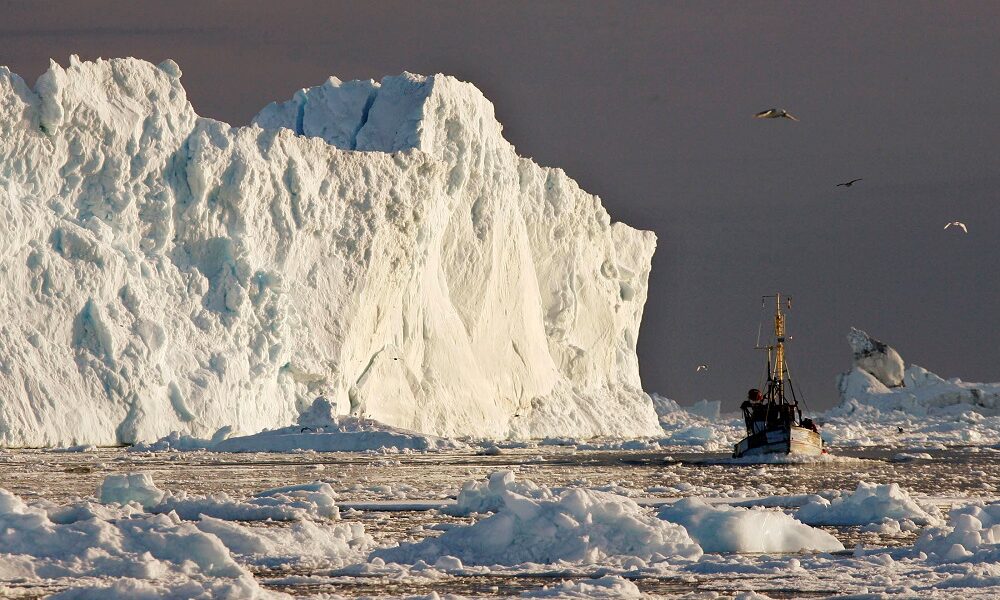Climate Change
Study finds fast melting of Greenland Ice Sheet will affect sea-level rise

New research published in the scientific journal Nature on Wednesday said that upper levels of the Greenland Ice Sheet from 2001 to 2011 faced the warmest temperatures in 1,000 years, threatening to tip sea levels.
Because of the tremendous amount of water held in the ice there, experts say the Greenland Ice Sheet plays a critical role in the global climate system. Researchers with the Alfred Wegener Institute said global warming is having a pronounced impact in the remote higher elevations of central-north Greenland.
The study’s authors said the Arctic has shown regular warming since the 19th century with the emergence of air temperature values outside the natural pre-industrial variability since the early-mid 20th century. They said that has also negatively impacted the Greenland Ice Sheet, UPI reported.
The ice sheet is projected to add up to 50 centimeters to the global mean sea-leave rise by 2100.
Half of world’s glaciers will vanish by year 2100 due to global warming, study says.
“The time series we recovered from ice cores now continuously covers more than 1,000 years, from the year 1000 to 2011,” the institute’s glaciologist Maria Horhold, said in a statement. “This data shows that the warming from 2001 to 2011 clearly differs from natural variations during the past 1,000 years.
“Although grimly expected in the light of global warming, we were surprised by how evident this difference really was.”
The researchers said that Greenland melting has substantially increased since the 2000s and is now playing a major factor in sea-level rise.
“We were amazed to see how closely temperatures inland are connected to Greenland-wide meltwater drainage — which, after all, occurs in low-elevation areas along the rim of the ice sheet near the coast,” Horhold said.
Researchers said that the global mean temperature has increased to 1.5 degrees Celsius above pre-industrial levels in the second decade of the 21st century while the Arctic region had the most significant warming, particularly in the winter season.
The report comes on the heels of another study posted in Nature in November that showed extensive thinning of Greenland’s ice sheet and a speedup of the Northeast Greenland Ice Stream that drains glacier ice into the sea.
That study said ice stream deterioration from that melt could raise sea levels by as much as 0.6 inches, more than six times what scientists had previously estimated.
